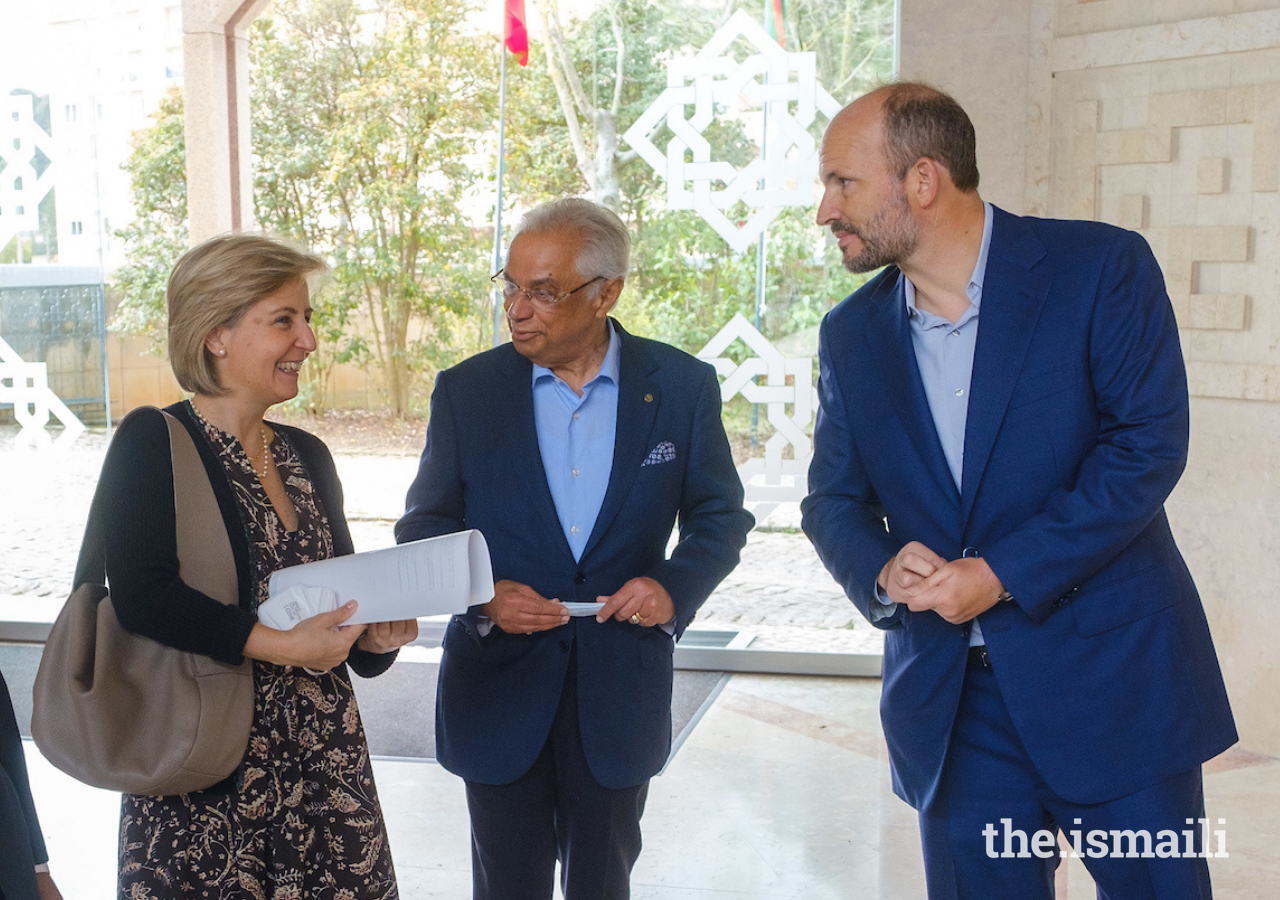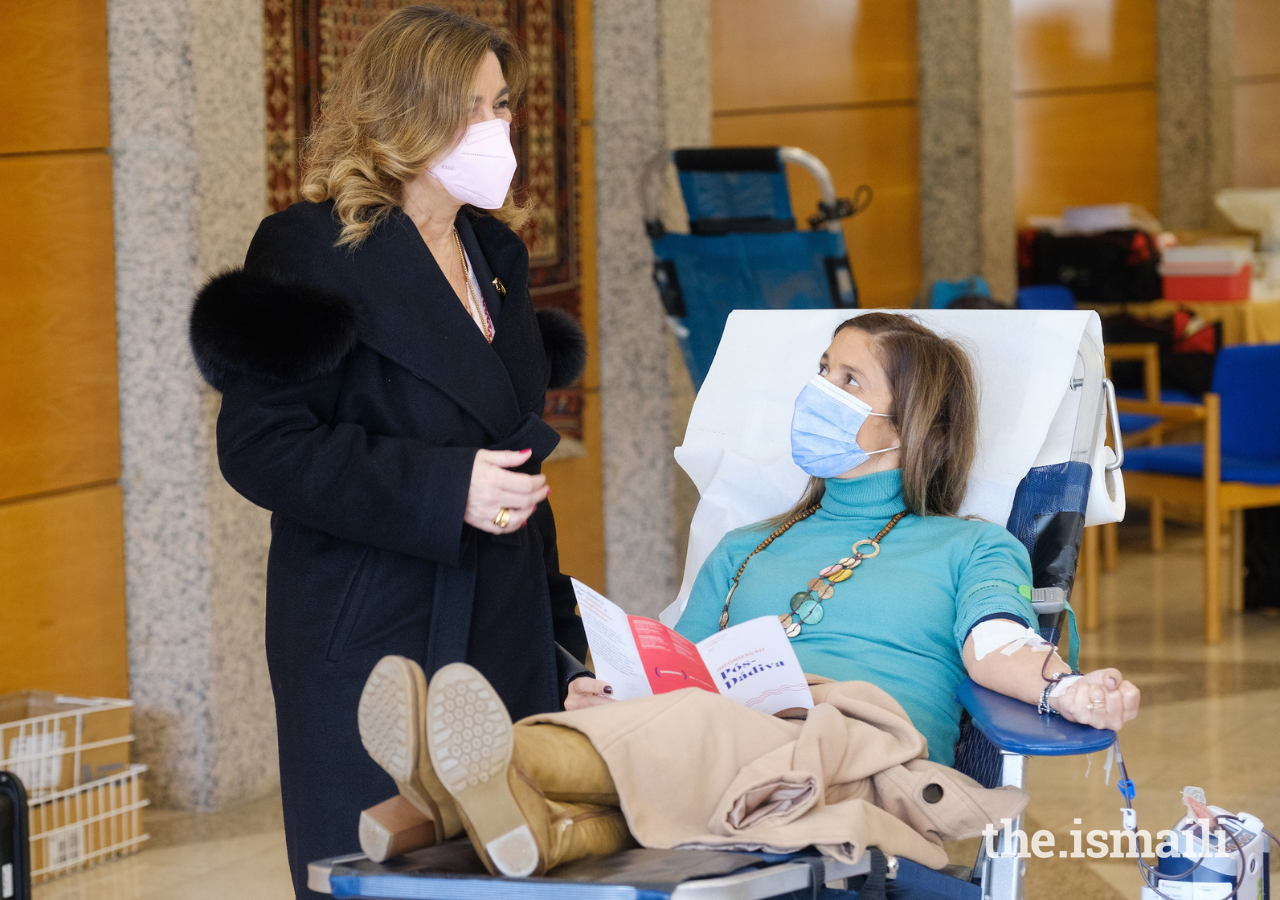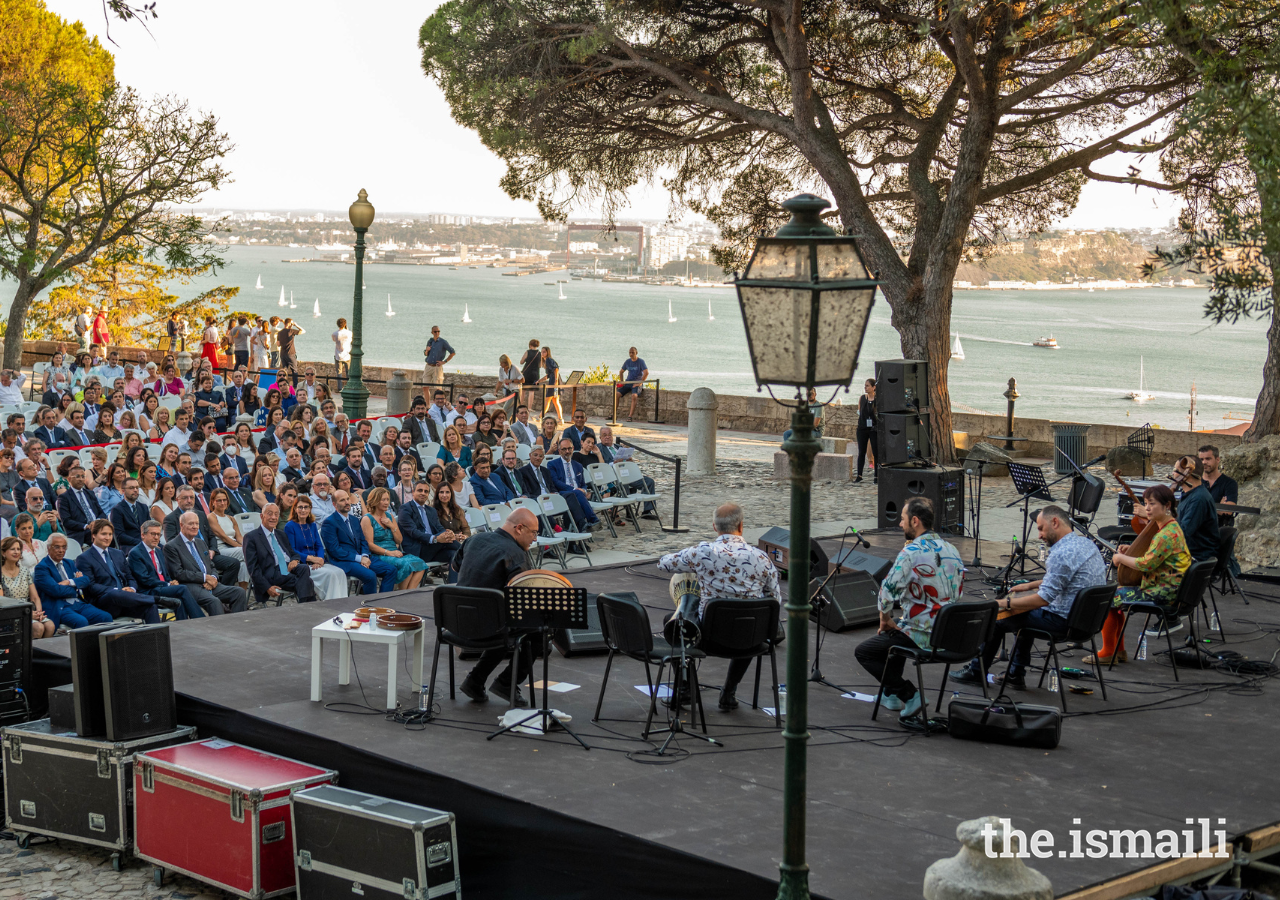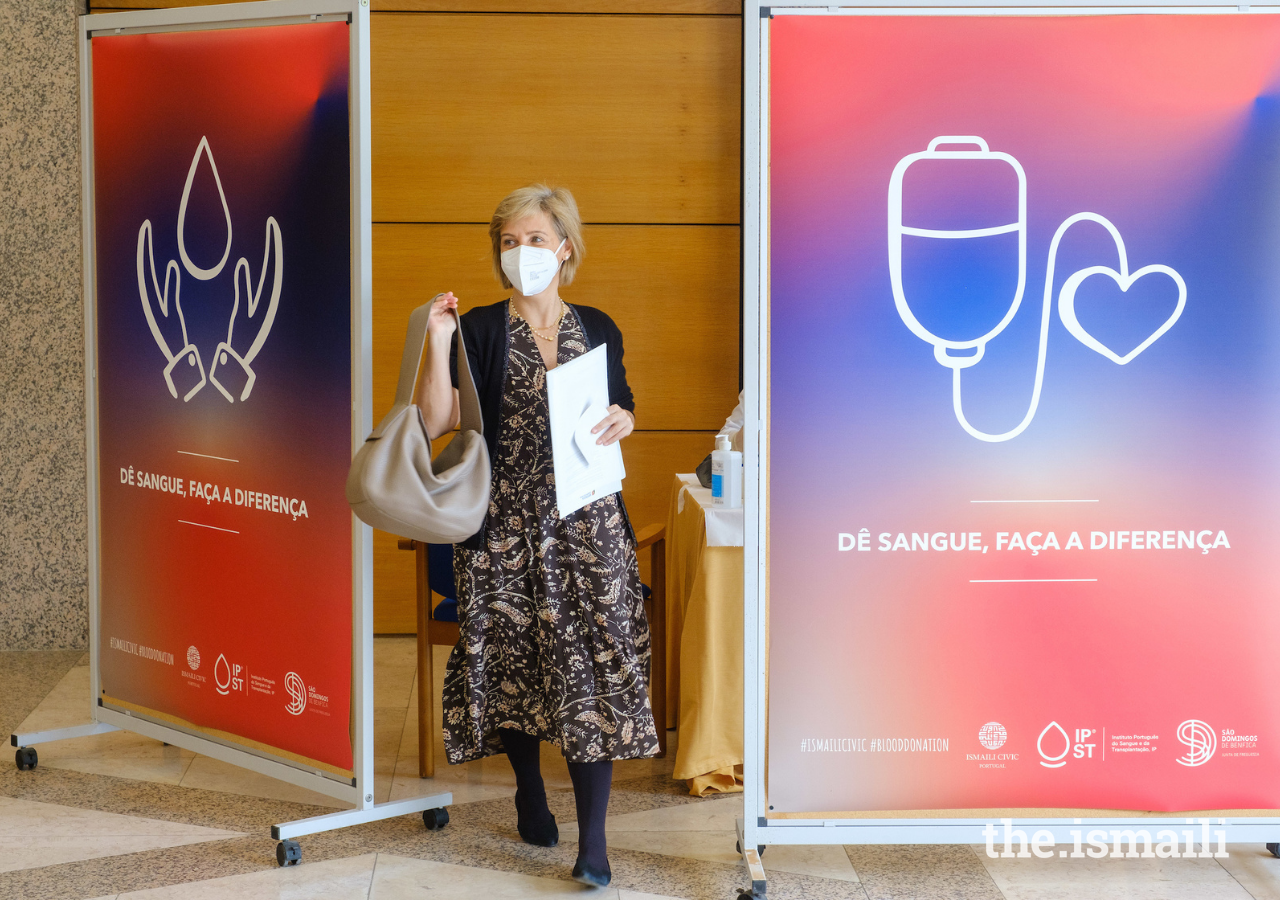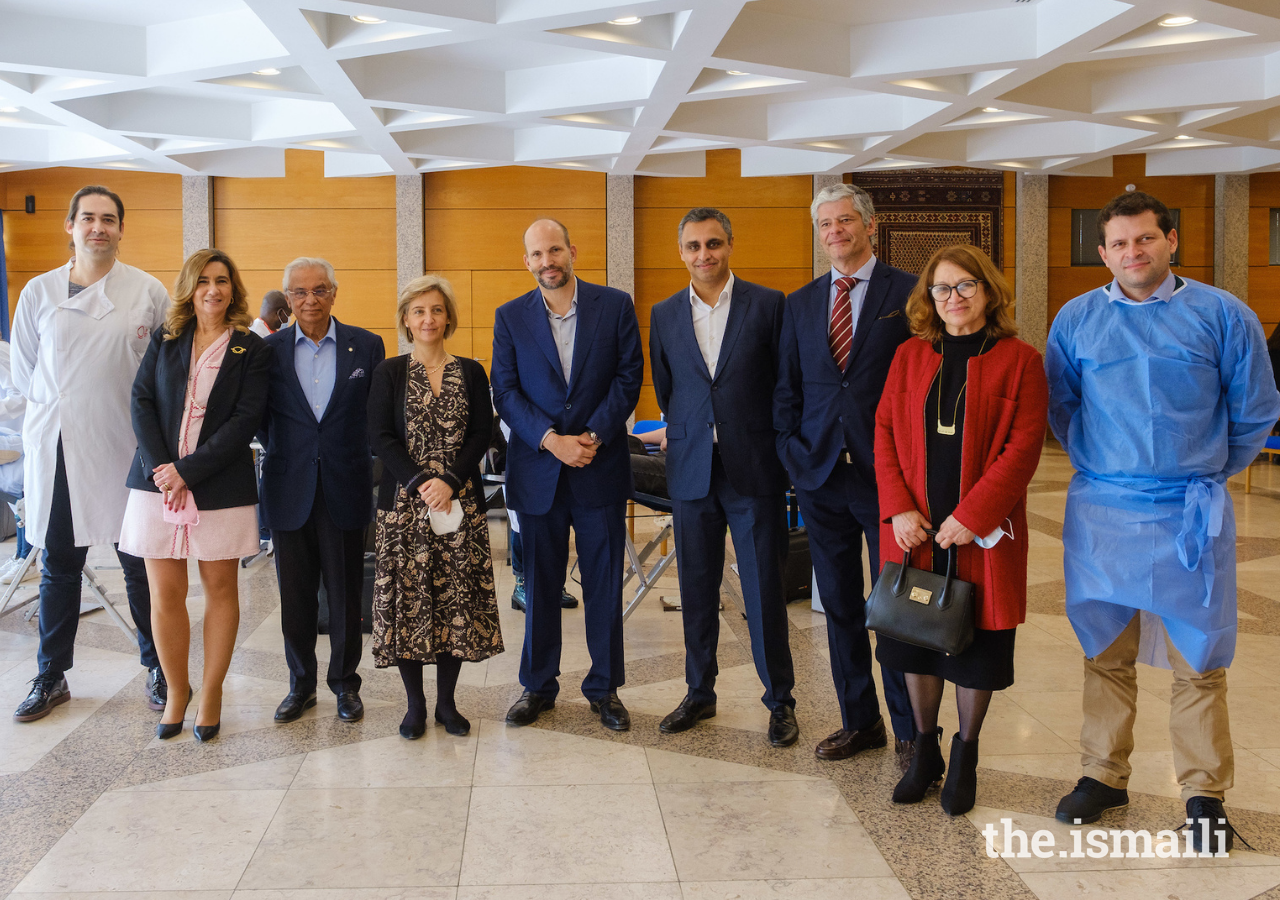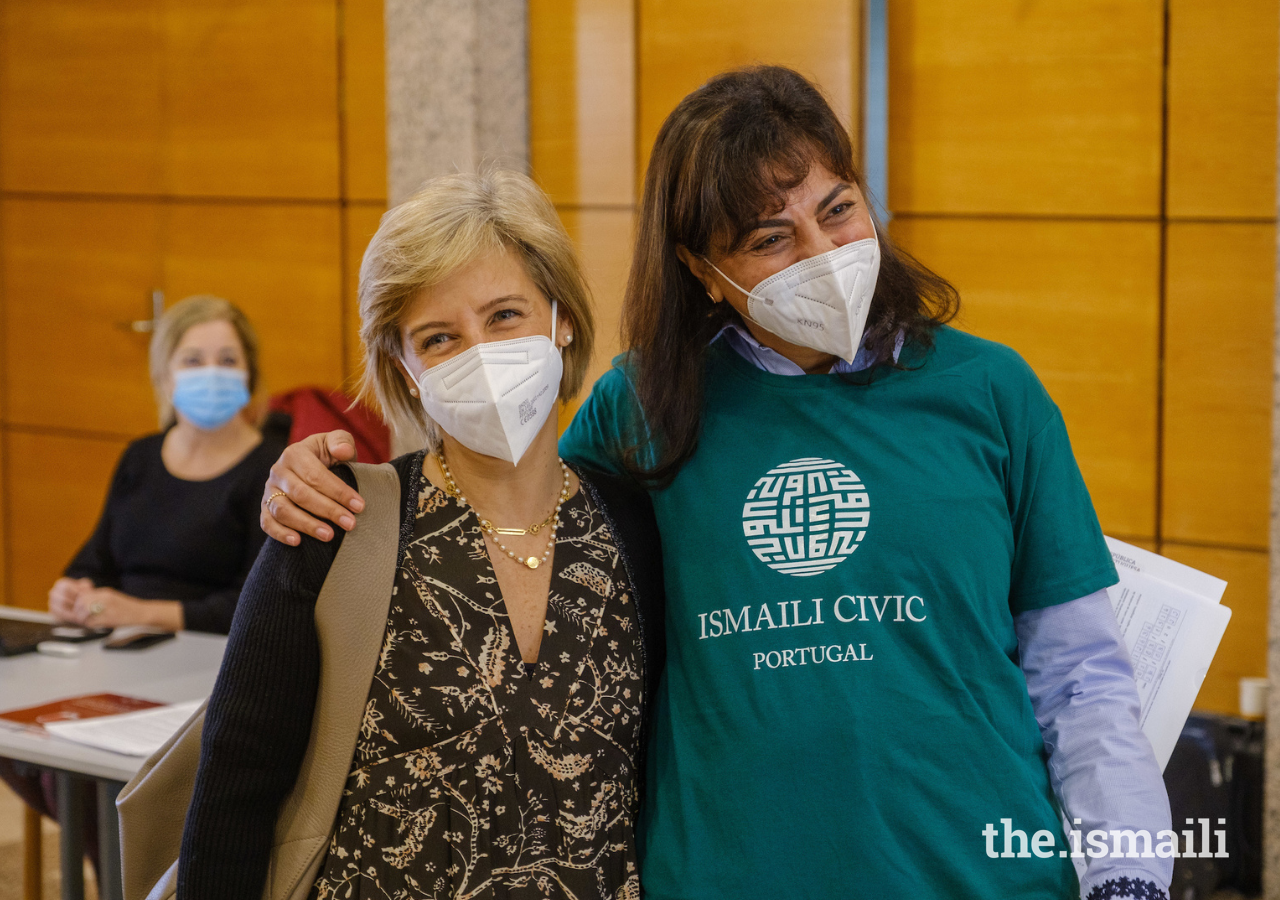Service and volunteering have long been part of Ismaili tradition, as has the recognition of the sanctity of human life. In the Qur’an, it is stated that “Whoever saves a life, it will be as if they saved all of humanity.” (5:32)
With blood reserves in Portugal running at their lowest level in many years, Ismaili CIVIC identified an unique opportunity to contribute to society in a meaningful way. A pop-up clinic in the Ismaili Centre’s social hall could offer members of the Jamat and the general public a space to donate blood in a safe and serene environment, and the chance to save a life.
In partnership with the Portuguese Institute for Blood and Transplantation (IPST) and the local parish of São Domingos de Benfica, the event was organised to coincide with National Blood Donor day, held on 27 March every year. IPST’s medical staff donated their time on a voluntary basis to be part of the project.
Dr Marta Temido, Portugal’s Minister for Health was welcomed to the Ismaili Centre by Prince Hussain, and spoke of her admiration for Ismaili CIVIC volunteers.
“Today, we are marking an initiative of the Ismaili Community in Portugal and the IPST in order to appeal for donation and to mark tomorrow's Blood Donor day,” she said.
As part of the campaign, Dr Marta joined 75 others on the day by donating blood herself, and appealed for further eligible donors to do the same.
A consistent supply of blood is essential to any nation’s health system. In Portugal, hospitals request 800-1000 units of blood for transfusion every day for childbirth, surgeries, and the treatment of diseases like sickle cell anaemia, some cancers, and for accidents and injuries.
“Today I met many health professionals, volunteers, and donors,” Dr Marta continued, “and I thank those who continue to support the blood reserves in Portugal.”
For patients who rely on regular transfusions, a disruption to the supply can be a matter of life and death. According to the Red Cross and Red Crescent, one blood donation can save as many as three lives.
“Giving blood is giving life,” said Marco Marques, who visited the Ismaili Centre in Lisbon to give blood for the first time.
“It was a pleasure to participate - something I've been thinking about for a few years,” Mr Marco continued. “The medical team were attentive and informative, and the process was quite tranquil and painless.”
“This feeling of sharing made me come here and I think it's important that we are all concerned with building a better world and saving as many lives as possible.”
The Covid-19 pandemic has led to an escalating demand for blood, along with a reduced supply, due to remote working and learning negatively impacting regular blood drives. In addition, growing numbers of regular donors testing positive for Covid-19 have had to cancel scheduled donation appointments. More than 60 per cent of today’s donors were offering blood for the very first time.
For these reasons, Portugal’s health service representatives were grateful to Ismaili CIVIC and its partners for organising today’s initiative.
“Thank you for your strong support,” said Dr Maria Antónia Escoval, President of IPST. “We need more blood, more young people. The patients are thankful as this helps save more lives.”
Anyone is eligible to give blood, provided they are fit and healthy, and within a particular age and weight group, depending on country guidelines. It is safe to donate approximately every 12-16 weeks.
Volunteer Karim Rahimo has donated blood on separate 3 occasions in the last year.
“I am a regular donor because I feel it is my civic duty, and it doesn’t cost me anything,” he said. “It feels very good to donate as part of a global initiative via Ismaili CIVIC - I usually donate in other contexts but it feels even better to do so with my community.”

